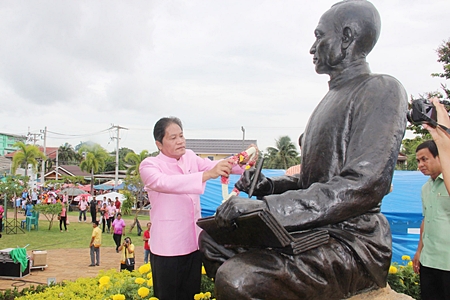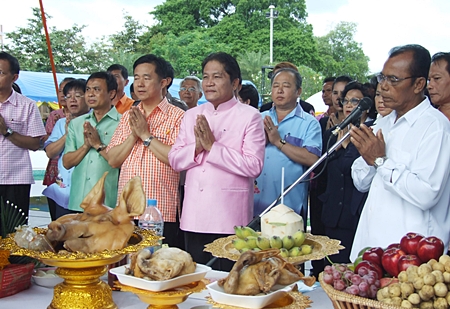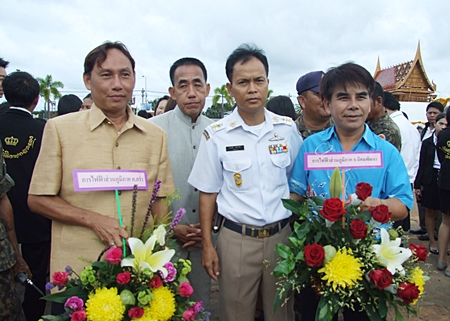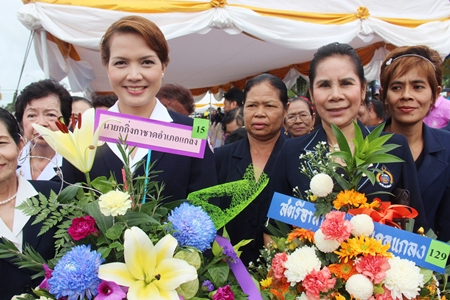Rayong officials commemorated the birth and life of the 18th century commoner who became Thailand’s most-heralded poet as the area celebrated Sunthorn Phu Day.
Commonly known as National Thai Language Day, the June 26 holiday is remembered especially fondly in Rayong, home to the father of the author of epic poem “Phra Aphrai Mani.”
Rayong Gov. Senee Jittakasem led the remembrance and merit-making ceremony at Sunthorn’s statue in Klaeng District, the birthplace of the poet’s father. Rayong MP Bunyat Jaetjan, district heads, and representatives from the Rayong Red Cross, Klaeng Ladies Development Group and Rayong Education Office also attended, joined by students and residents.
 Rayong Gov. Senee Jittakasem leads the remembrance and merit-making ceremony at Sunthorn’s statue in Klaeng District, the birthplace of the poet’s father.
Rayong Gov. Senee Jittakasem leads the remembrance and merit-making ceremony at Sunthorn’s statue in Klaeng District, the birthplace of the poet’s father.
The ceremony capped three days of celebration, featuring poetry readings, historical and cultural stage performances and food booths. Rayong Wittayakhom School student Kaiwansiri Kraiwan won the Sunthorn Phu poetry contest for the Matthayom level and Nanthayan Thumying from the same school won the Matthayom senior level prize.
Like his poems, Sunthorn’s life was a tale of sorrow and success. A child of divorced parents, he first lived with his father in Bangrum Temple, where his father was a monk and his mother a wet nurse to a princess. But the young man fell in love with Jun, a family member of King Rama I and he was arrested and jailed for the improper relationship.
When the King died, he was pardoned and went to live with his father in Rayong where he wrote “Nirat Muang Grang,” one of his most famous poems, which was about his love for Jun. He then returned to the palace and married her, had a son and was named court poet. Success, however, turned sour when Suthorn became an alcoholic, had an affair, got divorced, and was jailed after getting in a fight.
However, he remained court poet even after Rama II’s death. But, during a poem reading by Rama III, the poet publically corrected the monarch and was stripped of his title and banished from the palace. He briefly became a monk, then a merchant, but, after Rama IV’s daughter read the first parts of his unfinished serialized poem “Phra Aphai Mani,” he was invited to return to the palace to complete the poem, which was written in installments over 20 years and describes the romantic adventures of the title character throughout ancient Thailand. He died in 1855.








